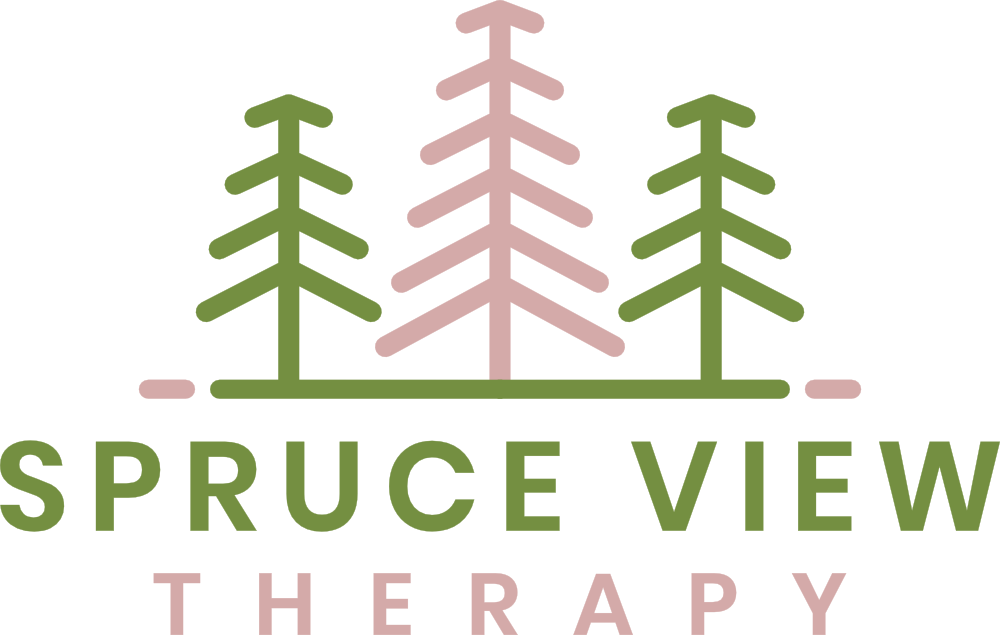When the World Feels Heavy: Strategies for Self-Care After Tragedy
Recent events—the death of public figures, acts of violence in our communities, and remembrance of past tragedies—can leave us feeling shocked, anxious, numb, or deeply unsettled. Even if you aren’t directly affected, these events can feel heavy, overwhelming, and all-consuming. As humans, we are wired to respond emotionally to threats and tragedies, and in an age of social media and constant news exposure, it’s easy to feel drained and powerless.
Sometimes we can grieve and carry on with our day. Other times, the shock and overwhelm hit harder, affecting our mood, focus, or motivation. We can’t always predict what will impact us the most, but we can continue to take steps to care for ourselves in the midst of it.
Strategies to Manage Overwhelm From Current Events
1. Limit News Exposure
The constant influx of news can keep your nervous system in a heightened state. Setting boundaries around when and how you consume information helps protect your mental health and prevents emotional burnout.
Schedule specific times to check the news instead of constantly consuming it.
Take intentional breaks from media for a few hours, or even a full day, to give yourself a reset.
Be mindful of your sources. Follow outlets that prioritize facts over sensationalism.
2. Give Yourself Space to Grieve
Tragedy affects everyone differently, and giving yourself permission to feel is an important step in processing emotions. Grief, sadness, anger, and fear are all normal reactions.
Write it down: Writing your thoughts and feelings on paper can help create distance. Tear, scribble, or discard the page afterward. Just getting it out matters.
Letter-writing: Write a letter expressing grief, anger, or fear to the situation or person involved. You don’t have to send it; the act of writing can help release tension.
Scheduled “worry time”: Set aside 10–15 minutes daily to reflect on worries or news. Outside that window, gently redirect your focus to grounding activities.
3. Use Grounding Techniques That Engage Your Body
Emotions are felt in the body as well as the mind. Grounding techniques help bring your nervous system back to the present moment.
Gentle movement: Even brief walks, stretching, or shaking out your hands can shift focus from anxious thoughts.
5-4-3-2-1 technique: Name five things you can see, four you can touch, three you can hear, two you can smell, and one you can taste.
Cold sensations: Splash cold water on your face, hold an ice cube, or place a cold pack on your neck. The cold sensations can help “shock” your nervous system to help you feel more present and grounded.
Progressive muscle relaxation: Gently tense and release each muscle group from toes to head, noticing the difference between tension and ease.
4. Healthy, Intentional Distraction
Sometimes our emotions feel too intense to process all at once. Healthy distraction is okay. It allows your mind to rest and recover, as long as you eventually return to process your feelings.
Intentional learning: Explore a hobby, skill, or topic unrelated to current events.
Play Tetris: It can sound strange, but research suggests that playing Tetris immediately after trauma can help reduce intrusive memories.
Hands-on activities or crafts: Knitting, coloring, or building something can calm the nervous system.
Guided mindfulness: Use apps or YouTube videos for meditation or body scans tailored to stress and trauma.
5. Focus on the Basics
It’s easy to forget the small habits. Returning to basics helps you maintain stability and prevent overwhelm.
Movement: Even 5–10 minutes of walking or light exercise can reduce anxiety and boost mood.
Hydration and nutrition: Continue to hydrate and eat nutritious meals.
Sleep hygiene: Maintain consistent bedtime routines and limit screens before bed to support recovery.
6. Practice Self-Compassion
It’s common to criticize ourselves for feeling anxious or sad during tragic events, especially if we’re not directly affected. Self-compassion and showing yourself grace can help reduce stress and emotional fatigue.
Remind yourself that it’s normal to feel anxious, sad, or angry.
Treat yourself with the same care and understanding you would offer a friend in distress.
Show yourself grace, if you cannot keep up with all of your normal tasks and responsibilities.
7. Take Small, Meaningful Action
Feeling helpless can be natural, but taking even small actions can restore a sense of control and purpose.
Donate to organizations supporting victims or communities.
Volunteer locally or online.
Offer emotional support to friends, neighbors, or colleagues.
8. Connect With Supportive People
Connection is crucial for mental health.
Talk with friends, family, or a therapist rather than constantly scrolling social media.
Support groups or therapy sessions can help process collective grief and normalize your reactions.
When to Seek Additional Support
Consider reaching out to a licensed mental health professional if you notice:
Anxiety or panic interfering with daily functioning
Persistent sleep disturbances or nightmares
Overwhelming sadness or hopelessness
Avoidance of responsibilities due to fear or worry
Any persistent symptoms
Therapists trained in trauma-informed approaches, such as IFS (Internal Family Systems) and EMDR, can help you process difficult emotions and develop personalized coping strategies. If you or someone you know is in immediate emotional distress, you can call or text 988 to reach trained counselors 24/7 for support.
Finding Calm Amid Chaos
While we can’t control tragedies or headlines, we can continue to care for ourselves. Grounding techniques, limiting overwhelm, taking intentional action, and connecting with others can help us navigate challenging times with resilience. Small steps like deep breaths, supportive conversations, or brief moments of self-care can help bring a sense of calm, even when the world feels too much.
If you’re in Colorado and looking for extra support, I’d be happy to help. Schedule a free consultation to get started.
Michaela Zoppa is a Licensed Professional Counselor (LPC) in Colorado Springs, Colorado. She supports women and teen girls navigating anxiety, perfectionism, trauma, and burnout. She uses evidence-based, trauma-informed modalities, including EMDR and Internal Family Systems (IFS) therapy.




